Democrats Killing Iowa Caucuses?
Momentum for ending an undemocratic anachronism is building.
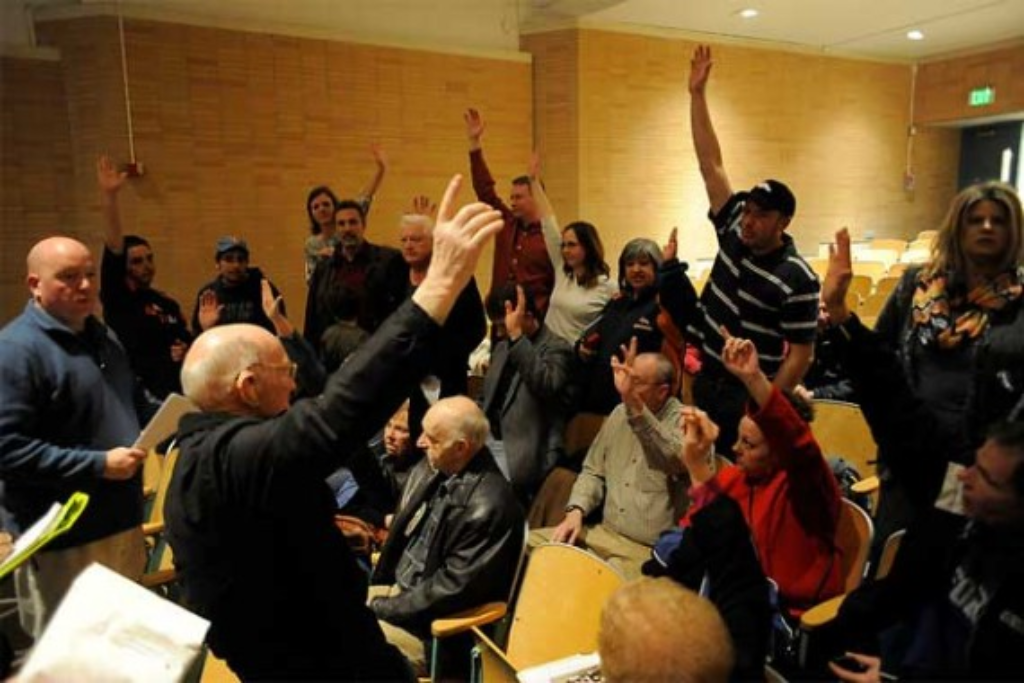
It has been a longstanding position by OTB front-pagers that the Iowa Caucuses are just about the worst conceivable way to winnow the field of potential presidential nominees. The state is too rural, too white, and too provincial to be an effective barometer of national support. And a time-consuming, non-secret process taking place in the heart of a brutal Midwestern winter isn’t even a particularly useful way to figure out the preferences of partisans in Iowa.
Brianne Pfannenstiel of the Des Moines Register reports that there is, once again, serious movement to end this nonsense.
Members of the Democratic National Committee took aim at Iowa’s first-in-the-nation caucuses Saturday as the group considers changes to the 2024 presidential nominating process.
Though there were few explicit mentions of Iowa and the collapse of its 2020 caucuses, those were the clear subtext of comments calling for the elimination of caucuses, restructuring the order of the early primary states and increasing diversity and inclusion throughout the presidential nominating process.
“While there are some benefits to caucuses, I think it is hard to argue that primaries don’t bring more voices into the process,” said DNC member Mo Elleithee. “And I think that is a key value of the Democratic Party.”
He said in addition to prioritizing primaries over caucuses, the party should emphasize diverse states and bring general election battleground states into the process far earlier.
“Three of the four current early window states satisfy at least two of those criteria,” he said. “One does not satisfy any of them, at least in recent years.”
Saturday’s virtual meeting of the DNC’s Rules and Bylaws Committee launched formal conversations about Iowa’s fate as calls grow to strip it of its prized caucuses in favor of simpler, more inclusive primaries and possibly remove it from the front of the nominating calendar.
Since Jan. 24, 1972 – 50 years ago this month – Iowa has kicked off the presidential nominating process with its caucuses. And for nearly as many years, Iowa has been a target as other states vie to assume its coveted status.
But those conversations gained steam in 2020 when Democrats were unable to report out accurate results of their caucuses in a timely manner. The debacle came as complaints that Iowa’s demographics do not represent the nation at large and its processes disenfranchise potential caucusgoers gained steam.
Obviously, Iowa will fight to keep its position:
Iowa Democratic Party Chair Ross Wilburn issued a statement at the conclusion of the meeting thanking DNC Chair Jaime Harrison for the open line of communication.
“I will continue to fight for Iowa to remain first, and I also understand that the DNC has their own process that must be followed,” Wilburn said. “As Chair of the Iowa Democratic Party, I’m committed to working with the DNC and my fellow early state leaders in New Hampshire, South Carolina and Nevada to ensure future successful Iowa Democratic Caucuses.”
In a defense of Iowa’s caucus process, the Iowa Democratic Party released a statement saying the state provides an equitable playing field for diverse candidates and that it also represents a key constituency that the party has failed to connect with: rural and working-class Americans.
We’ll see if this gains any traction.
My longstanding preference is for some sort of national primary or at least simultaneous primaries in a representative handful of states that would rotate from cycle to cycle. Arguments that had merit forty or fifty years ago about the utility of Iowa and New Hampshire as “retail politics” that allowed fresh candidates without national exposure to slowly build momentum have long been obviated. The last relatively unknown candidate to win a party nomination was Jimmy Carter in 1976.
In recent years, though, fundraising has become nationalized and the associated rules have tilted in favor of Washington insiders, particularly Senators with huge war chests already built up and away from governors. That’s frankly a shame but, given that the rules are made in Washington, I don’t see that changing.
Regardless, 2024 might well be an ideal time to make this change. With a sitting President, the Democratic nomination is unlikely to be contested, anyway. So it’s not like there are going to be a ton of Democratic hopefuls setting up shop in the state’s eateries. By 2028, the caucuses would simply seem like a relic of a bygone era.

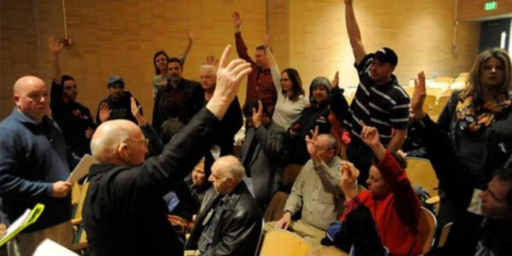
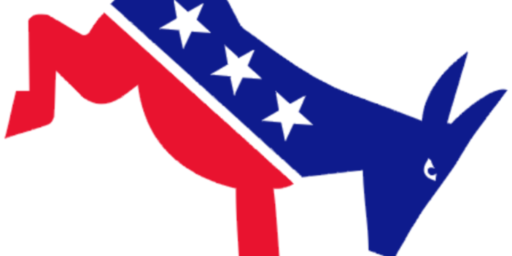
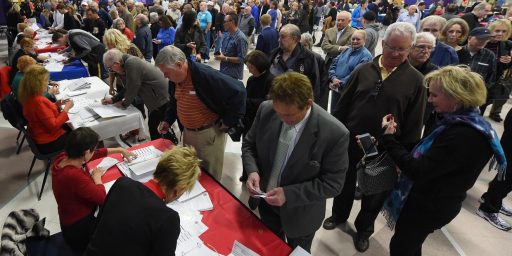

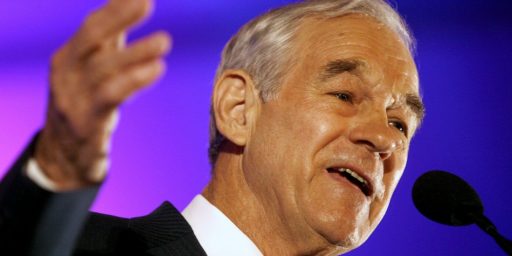
At some point, politics has to stop living in the XVIII Century.
@Kathy: We’ve selected presidential nominees via binding primaries for a little over 50 years. It’s turned out not to be a great idea but it’s not a relic of the Founding generation, who failed to anticipate political parties.
There is a benefit in having a handful of smaller states go first as it allows for old fashion retail politics and sometimes, less expensive media markets. Whether that happens on the same day or consecutive weeks. It would be best that those states look like America and be geographically disbursed.
IIRC, Iowa statute requires caucuses and requires the parties to schedule the caucuses so they are first in the nation. I look forward to the face off between the DNC and the Iowa legislature.
Side issue that Dr. Joyner might want to check on… I believe that Iowa is like most states and, despite nationalization of politics, still regards the state parties as sovereign in statute. That is, the state party can place names on the ballot; the national party can’t.
I find it ironic that the person who did the most to wreck the Caucus system was Bernie Sanders. You may remember that despite losing to Clinton by every metric, the Bernie Bros (with Bernie’s blessing) insisted the primary election had been stolen (sound familiar?). And the thing that most animated Sanders himself was the Iowa caucus. It was close, but he lost and so he demanded a recount, only to learn that given the nature of a caucus there can’t be a recount. He then spent a significant chunk of his political capital “reforming” the caucus system. Recorded votes, remote access for invalids, and dozens of other changes. The result? Rather than being the cheapest way to chose a candidate it became the most expensive, awkward and riskiest way. In 2016 fourteen states used caucuses. In 2020 it was only 3. And Iowa was a disaster.
The only reason Iowa keeps its caucus is because of the agreement that they can be the first caucus but NH gets first primary.
@Michael Cain:
Iowa can hold the caucuses but the parties need not honor the results and could penalize any candidates participating. The same issue exists with the NH primary. The law is written so that the date automatically moves up a week before any other primary. That’s how a March primary in 50 years past, became a February one.
@Sleeping Dog:
“It would be best that those states look like America and be geographically disbursed.”
And not the same ones every 4 years.
@James Joyner:
I mean things like caucuses, and having to be physically present to vote or take part, etc.
@Sleeping Dog:
By the time Iowa rolls around, the campaign has been going on for about a year and there have been approximately 700 nationally-televised debates. Iowa, in particular, is almost entirely about organization—which takes money.
And, even if it were still a thing rather than just a wistful fantasy that hasn’t been true since 1976, I don’t even understand the ostensible value of “retail politics.” The ability of a person to make connection with locals over pancakes has surprisingly little to do with who would make a good President.
@Michael Cain: @Sleeping Dog: Yes, states can hold primaries and caucuses whenever they want But the parties make the rules as to which ones count and how much they count.
As a newly returned front-pager, I just want to say I whole heartedly co-sign:
and
My slight build to this is that the rotating representative selection of states should not be a regional one.
The Iowa caucus system is pretty interesting. I have attended my local joint every time after moving here. The on the ground process is pretty cool in person.
The problem isn’t Iowa or New Hampshire, it is how pundits and gasbaggers interpret / misinterpret the results. Political pundits want and need a horse race. Are dying for it. Wildly overplay and riff on the results to extremity. It is obscene and bonkers. It is one result. Deal.
Whoever goes first will be subject to the same insanity.
The problem is not who goes first, it is because the out of control reaction to the results from parts of the commentariat.
I voted for Buttigieg, btw.
@James Joyner: “And, even if it were still a thing rather than just a wistful fantasy that hasn’t been true since 1976, I don’t even understand the ostensible value of “retail politics.” ”
THANK YOU!!!
As a non-partisan who mostly alternates between dislike and loathing of each party, I’ll just piss into the wind here and state my preference:
Primaries, if we must continue to be burdened with them, should be a national contest on a single date, using RCV with only party members eligible to vote.
My view is the staggered nature of the current candidate selection process is the root problem not which state(s) happen to go first. That problem doesn’t go away if you switch out Iowa for some other state.
@Andy: Maybe we should have the primary dates determined for each election by random chance? (Use something physical, so you have something actually random. Base it off radioactive emitters or something similar.)
I caucused for the 2016 election and the 2020 election. Neither were all that fun and a huge waste of time wrt to voting in a primary. Bernie took my precinct in the first one but lost to Warren the next go around. In fact Biden didn’t even make it to the second vote last time. All in all the only thing I liked about the entire caucus system was how much money flowed into to Des Moines which was great fro the service industry.
@grumpy realist:
In my ideal fantasy world, I would just have each national party set a specific date for federal election primaries (or even caucuses), probably sometime in the summer before the general election.